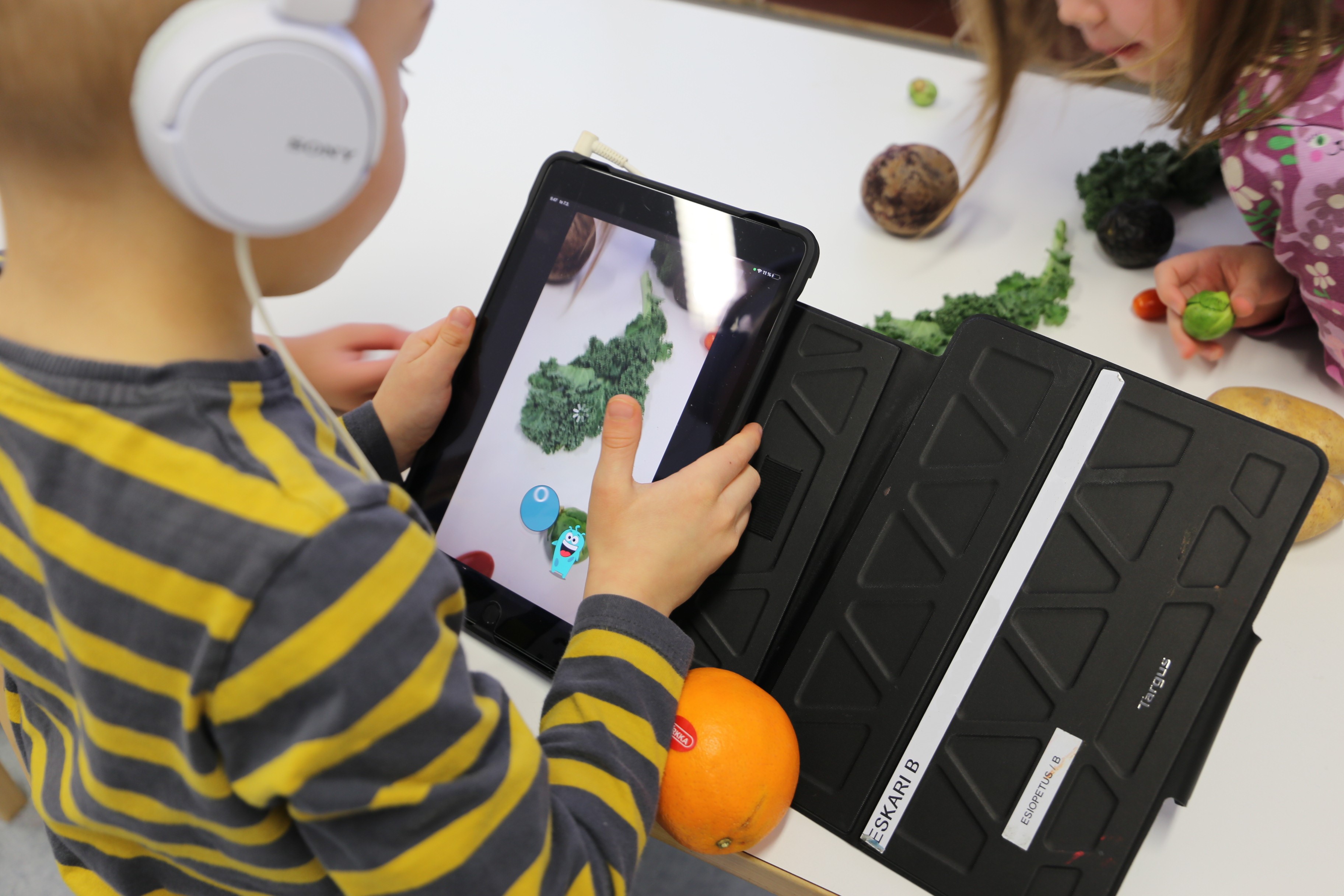The Vegemi stomach bacterium inspires children in viskari groups and preschool to add more vegetables on their plate

The Vegemi food education method focuses on the adventures of Vegemi, a cartoon character resembling a good stomach bacterium. Different vegetables, fruits and berries give Vegemi superpowers, which are based on EU-approved claims about the health benefits of fruits and vegetables.
The City of Tampere launched Vegemi in preschools and for viskari groups at the start of 2024 as part of the Development Programme for Carbon Neutral Actions and the FUSILLI project. Food education during early childhood education is one way for the city to promote sustainable consumption and lifestyle in its own services.
– A vegetable-rich diet is the diet of the future. Vegemi is both an exciting food education method for children that aims to increase well-being and simultaneously a significant climate action by the City of Tampere. We believe that the city needs to support children and families' interest in eating fruit and vegetables, because of their undeniable health benefits and environmental benefits. Systematic food education starting in early childhood education is also an important way to reduce disparities in well-being. We welcome the opportunity to collaborate with early childhood education and to make the Vegemi food education method available to all preschool and viskari groups, says Project Coordinator Elina Pulliainen from the City of Tampere.
More carrots and peppers found on plates
Vegemi is freely available for preschools and for viskari groups to use until the end of June. In addition to the application, the method includes food education materials meant for early childhood education. The materials consist of 10 food education themes, instructions on how to guide food education sessions, nutritional information, stories, logic puzzles, crafts, games and songs.
At Lentävänniemi school, preschool group B started using Vegemi at the start of 2024. Preschool teacher Iris Poutanen wanted to try Vegemi in her own group, as she has noticed in her work that children sometimes have challenges eating vegetables. According to Poutanen, a game that deals with positive food education is a genuinely effective way to get children to eat more fruits and vegetables.
– Vegemi has clearly had a positive effect on the children’s attitudes towards fruits and vegetables, and it has increased the children's willingness to eat them. For example, the children have learned that carrots and peppers are good for your eyesight, which is why, during one lunch break, they piled a lot of grated carrots on their plates, Poutanen says.

Only a fraction of children eats the recommended amount of fruits and vegetables
A study published in 2021 by the University of Turku showed that only one per cent of Finnish children between the ages of two and six ate the daily recommended amount of vegetables, fruits and berries.* It is important to learn to eat fruits and vegetables already as a child, as the foundation for human eating habits is formed early in childhood. Fruits and vegetables support a child’s healthy growth and development. The recommended amount of fruits and vegetables is roughly five fist-sized portions per day.
Vegemi is a product of Vegducation Oy, which spun off from Venner Oy, the company that developed the Vegemi app. The startup has received attention in Finland and abroad.
– Our Vegemi method combines food, welfare and eco education. Children are curious and affect their environment from a young age. We encourage children to understand the consequences of good choices and offer them fun experiences with Vegemi’s adventures, says Emilia Järvinen from Vegducation.
The children's comments on Vegemi:
Tauno, 7 yrs: Vegemi puzzles are fun!
Eetu, 7 yrs: Vegemi is a fun game.
Samuel, 7 yrs: Vegemi makes people want to try new vegetables.
Olivia, 6 yrs: I have learned that cucumbers are over 90 per cent water.
Niilo, 7 yrs: The best part of Vegemi is when carrots and peppers give you super vision power!



